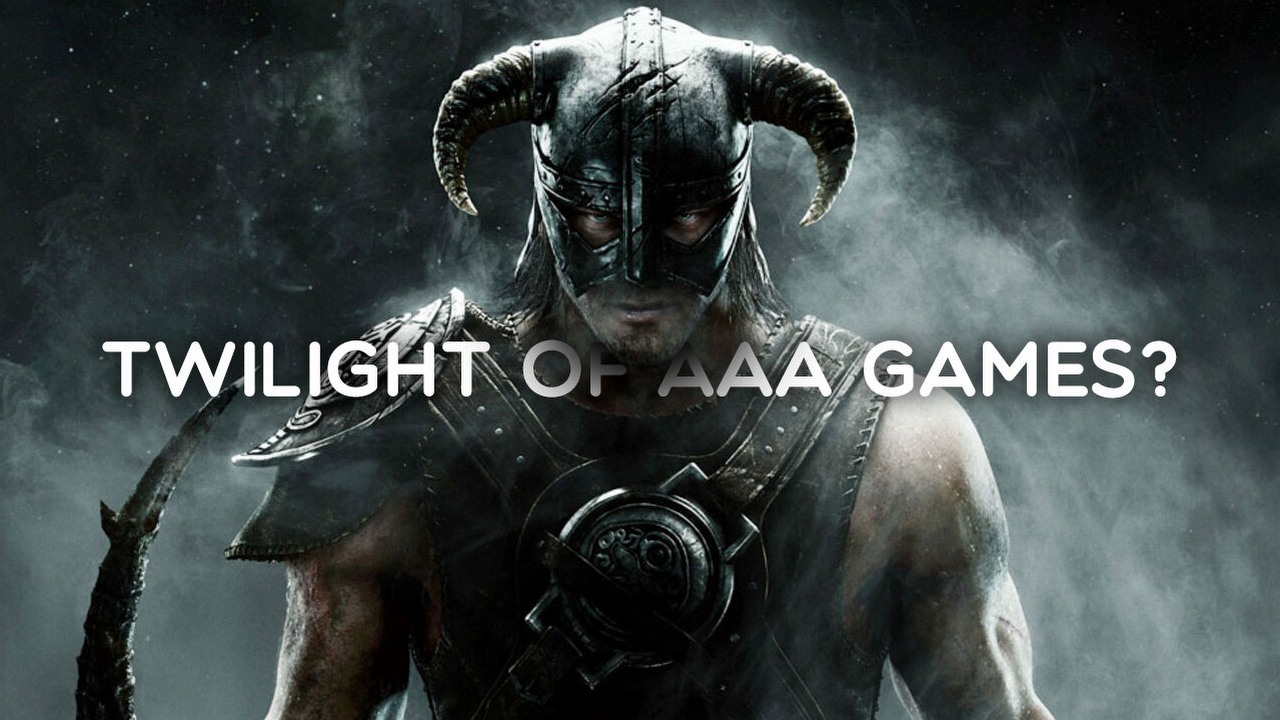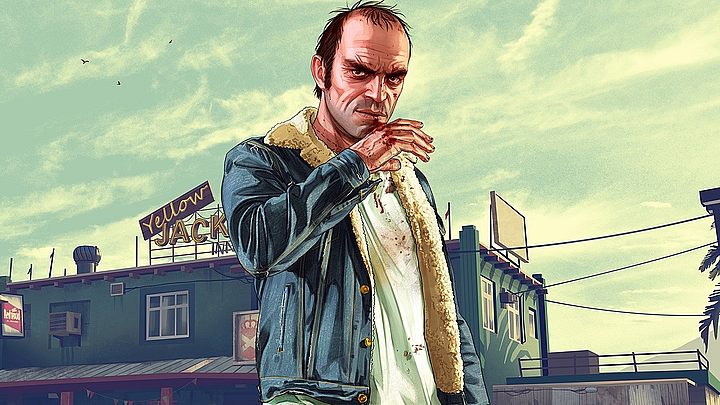I May Not Live to See Elder Scrolls 7; It's the Twilight of AAA Games
The „triple-play” segment will never die, but every year there seem to be fewer and fewer of them, especially the most high-profile ones. This is because studios need more and more capacity to „prove” a given title, and this in turn consumes time.
1

After a long period of separation, I returned to the third Doom, which reminded me of the existence of a small easter egg, which you can come across shortly after the invasion of the infernal spawn begins. The easter egg is a TV hanging in the dining room, where news of the imminent release of Quake 43 appears. Now, I've known about it for years, so it was not much of a surprise. This time, however, I perceived it differently than usual, because I was struck by how optimistic the developers were about potential sequels and how unrealistic the prediction turned out to be; a small reality check.
Doom 3 launched on August 3, 2004. At that time, the number of games in the Quake series was almost three, which meant that by 2145 – when the action of the shooter in question takes place – a total of forty installments of the series would have to be released, one every 3.5 years on average. Fate has it that over the past eighteen years id Software managed to deliver just one full-fledged sequel to Quake, or two, if in addition to Quake 4 we also take into account Quake Champions. At this rate Quake 43 would have been released around 2300 at the earliest, and that's on the optimistic assumption that successive generations of developers wouldn't go crazy from the production of one and the same game over and over again.
Of course, the development of a new AAA shooter in three and a half years is possible today (the 2016 sequel to Doom would be developed in exactly that time frame, if the developers had not postponed its release), but in practice, the production process is getting longer by the year and it doesn't look like anything will change in this regard in the future. It looks even worse in the case of more complex games, such as typical open-world action games or RPGs. The latest installment of the God of War series was five years in the making, Red Dead Redemption 2 eight, and the sixth TES will probably launch no sooner than round fifteen years after the release of Skyrim. In the latter case, you have to take into account that Bethesda has delivered Fallout 4 and grappled with Starfield in the meantime, but we know that in such large companies, several projects are carried out simultaneously and people are shifting between them, depending on the needs. Fans of Elder Scrolls may, however, look at it all differently. They played Oblivion four years after Morrowind; Skyrim arrived five years after Oblivion, and part six... well, in November it will be eleven years since the release of Skyrim and all we know is that the game is still in pre-production.
Another telling example is 2018's God of War. Shortly after its release, Cory Barlog told in an interview why it took five years to prepare the Nordic installment of Kratos' adventures. The director explained that the team had to build the game practically from scratch, and even the first gameplay, which we saw in 2016 at E3, could not reflect the final result, because the developers had not yet dealt with many issues, mainly technical ones. At the same time, Barlog expressed the hope that for future games, the whole process could be significantly accelerated – after all, a large part of mechanics and systems will already be ready. Time has shown that these hopes were in vain.

Sure, the game developers' plans were certainly thwarted by the health problems of Christopher Judge, who not only voices Kratos, but also takes part in full motion capture sessions. However, it's hard not to get the impression that the development of new AAA games has become increasingly time-consuming in recent years, and as a result, such titles are appearing less and less often. As late as the end of 2020, I was still holding out hope that Ragnarok will arrive in the spring of 2021 at the earliest; today I am deluding myself that Sony will deliver the long-awaited product before Christmas this year. In the meantime, it has even been decided to shorten the trilogy and close the Norse story in two installments, because, as Barlog himself stated, the whole project would take at least fifteen years out of his life, which is far too long.
Some of us at Gamepressure recently talked about whether we are witnessing the twilight of traditional AAA games and I, too, am becoming more and more convinced that we are indeed. It's not that these games will cease to exist, but the frequency with which new installments of favorite grand series are released is starting to raise legitimate concerns. One can accuse Rockstar of squeezing absolutely last pennies out of GTA Online, indentifying the reason why it's so reluctant to fully commit to developing GTA VI, but the truth is that constantly raising the bar takes valuable time, and going below the level of RDR 2 is not an option, after all.
Currently, even Ubisoft is unable to deliver more games in the Assassin's Creed series every year, which, until recently, was a heavily criticized practice. Three separate teams in Montreal simultaneously working on different episodes of the assassins saga is already a distant, vague memory. Today, more than a dozen studios scattered around the world are working on a single game, and still it seems impossible to tie it all together relatively quickly. So it seems all the more likely that the rumors of Ubisoft creating a single assassin base, which will be expanded with paid modules will over time. This kind of game-service would provide Ubisoft with revenue for years to come, without the need to constantly reiterate new installments. We would simply get very elaborate DLCs with new adventures, and this, in a way, is already happening in games like Valhalla, where this model is being heavily tested.
In conclusion, I won't say that I'm happy about this turn of events, because I also have my favorite series from the triple-A segment and would like to see their continuations in much smaller intervals. However, I realize that in the next few years things will get worse in this regard, and potential sequels will be made even longer. It's time to slowly get used to the idea that I won't play The Elder Scrolls VI before I'm 50, and then I may not even live to see the next installment.
- AAA Games Don't Always Take Years to Develop. Former Bioware Employee Explains Why We Wait So Long for Big Hits
- Arkane founder appeals to people concerned about game industry crash: „The market is correcting, we need to adapt”
- Is the age of huge games over? Clair Obscur: Expedition 33 success is „a harbinger of change” and „a title that 100% knows what it is”
1
Latest News
- End of remote work and 60 hours a week. Demo of Naughty Dog's new game was born amid a crunch atmosphere
- She's the new Lara Croft, but she still lives in fear. Trauma after Perfect Dark changed the actress' approach to the industry
- „A lot has become lost in translation.” Swen Vincke suggests that the scandal surrounding Divinity is a big misunderstanding
- Stuck in development limbo for years, ARK 2 is now planned for 2028
- Few people know about it, but it's an RPG mixing Dark Souls and NieR that has received excellent reviews on Steam, and its first DLC will be released soon

